Keeping tradition alive, in hopes to one day return home to Crimea
A map of Crimea is drawn on the blackboard as a teacher educates students on the history of this state. Children, 8 and 9 years old, carefully take notes as some raise their hands to ask questions. This school is a program run by the non-profit, Krymska Rodyna, and hosts lessons every Saturday on all Crimean Tatar traditions. From history lessons to dance lessons, classes are offered to youth starting as early as 4 years old to adults.
Five years ago this month Crimea was occupied by Russia, and conflict broke out in eastern Ukraine, causing 1.5 million persons to be displaced. Many, including Crimean Tatars, fled to major cities, such as Odesa, Lviv, and Kyiv, thus starting new lives.
Anife Kurtseitova, 37, has been an activist fighting for the rights of the Crimean Tatar community. A strong advocate, she has participated in numerous interviews, educating others about her culture, and hosted fundraising campaigns for Crimean children of political prisoners. She decided not to let tragedy determine the fate of her community.
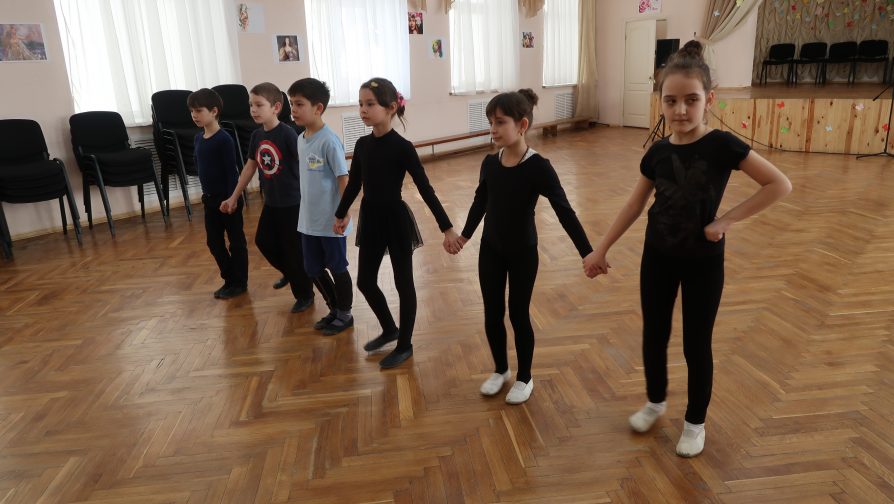
Building an NGO organization after moving to Kyiv, she began a Saturday school program focusing on all things relating to the Tatar culture. While negotiating with the Department of Education , she managed to arrange the permission to use several premises on the basis of one school in Kyiv during the time free from classes.
Parents and all community of IDPs from Crimea hope that the city authorities will pay attention to the successful activities of NGO and will provide premises for the creation of a unique Crimean-Tatar center for children. Given the fact that over the last year the number of visitors to the center has doubled. Currently, there are 100 pupils and about 50 families, who would like to join the school because there are nothing similar in Kyiv.
The children are divided by age, covering specific categories; dance lessons, music lessons, history lessons, and even the Tatar language. Traditional Tatar embroidery classes are also offered for adults. The students also host public dance performances in traditional costumes.
Running up and down the stairs speaking to mothers who are helping her coordinate the classes, Anife quickly caters to each teacher’s needs. In the waiting room, parents laid out cakes and desserts as they laughed and shared stories about their children. Everyone knew everyone, and the parents were just as dedicated as Anife in keeping the program running.
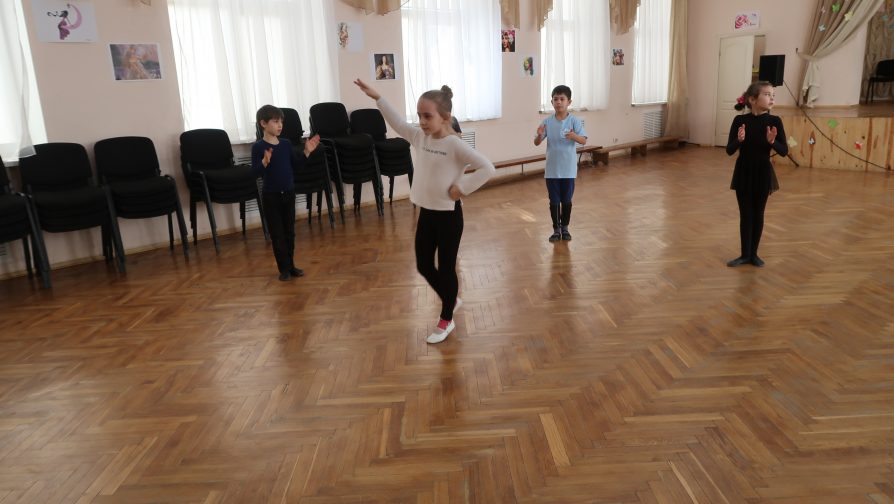
“It is important for me to keep our traditions and languages alive. We are waiting when the Crimean occupation will be over and all these families will be able to come back home,” says Anife.
Though it is unknown when this day will come, Anife refuses to give up hope, finding creative ways to keep the spirit of her heritage alive. Her pride represents leadership, and with her guidance the Tatar community became a team. With their efforts, their culture will live on to future generations regardless of any difficulty.
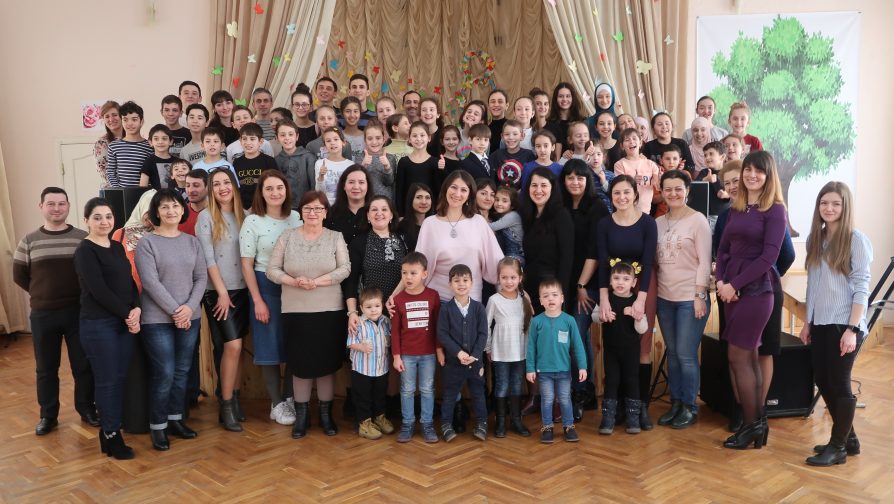
Community-based approach a core to protection and transcends to UNHCR’s work with displaced population. UNHCR Ukraine protection strategy is built on strengthening community based protection mechanisms initiated by the IDPs and host community to identify and respond to protection needs and create coping mechanisms.
UNHCR Ukraine community based protection activities included regular dialogue and communication with IDPs through protection monitoring and Participatory Assessment and Support to small community initiatives. The project was aimed at enhancing capacity of the NGO consisted of initiative of Crimean Tatar IDPs to provide activities for Crimean Tatar children aimed at maintaining their ethnic identity and cultural traditions on the mainland of Ukraine. In 2015 and 2016 UNHCR provided technical assistance (microphones and audio system) and 10 stage outfits for children to the NGO for conduction of classes of Crimean Tatar music, vocal and dancing for the children.
Page 12 of 35
-
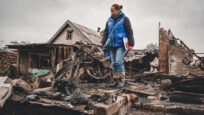
Everyone can be a hero: the humanitarian response in war-torn Ukraine
23 Feb 2023The full-scale invasion of Ukraine in February 2022 upended the lives of millions of people in Ukraine. As the humanitarian needs have grown for more than 17 million people countrywide, Ukrainian non-governmental organizations’ (NGOs) have stepped up their efforts to reach and support the most vulnerable people impacted by this […]
-
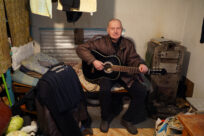
Makariv musician finds solace in singing amidst the tragedy of war
20 Feb 2023In a small town on the outskirts of Kyiv, Ukraine, the strumming of a guitar can be heard from the street. This town on the riverbank, Like a flash of magical torches, Warms the soul like the flame of a candle, It’s called simply… simply Makariv On the other side […]
-
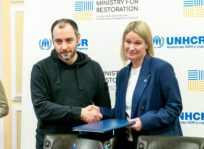
Launch of a new platform ‘Ukraine is Home’ to facilitate housing solutions
10 Feb 2023The Ministry of Communities, Territories and Infrastructure Development and UNHCR, as humanitarian Shelter Cluster lead agency, launched a new collaborative platform ‘Ukraine is Home’ –to match supply and demand for assistance with housing repairs and reconstruction. The platform aims to provide a transparent and efficient system for humanitarian, recovery, development, […]
-
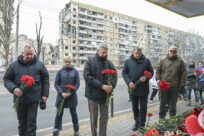
UNHCR’s Grandi ‘appalled’ by destruction after six-day Ukraine visit
27 Jan 2023The United Nations High Commissioner for Refugees, Filippo Grandi, today concluded a six-day visit to war-torn Ukraine, his third visit since the Russian invasion, with a call for donors to stay the course and support the people who are suffering acutely. He travelled through the south and east of the […]
-

UNHCR provides generators to help families stay warm amidst blackouts
17 Jan 2023A small settlement of modular houses near the war-stricken town of Borodianka recently became home to around 280 people. Less than a year ago, practically all the residents of this new community lived peacefully in their own houses and apartments. But after 24 February, Borodianka, situated on the outskirts of […]
-

As snow falls on Chernihiv, a town north of Kyiv, families are finding solace in the warmth of their newly repaired homes
28 Dec 2022UNHCR’s shelter programme repairs homes damaged by airstrikes and shelling this year
-
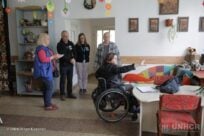
Working together to include people with disabilities
27 Dec 2022It is estimated that 15% of the world’s population have a disability, including people with intellectual disabilities, Deaf people, autistic people and women with disabilities, reminding us that disability is diverse and often invisible. In Ukraine and many other humanitarian situations, this figure is likely to be higher. The war […]
-
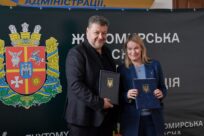
UNHCR, the UN Refugee Agency and the Zhytomyr Regional State Administration solidify ongoing collaboration in support of people impacted by the war to recover and rebuild their homes and lives.
21 Dec 2022UNHCR, the UN Refugee Agency and the Zhytomyr Regional State Administration signed yesterday a Memorandum of Understanding that sets out concrete areas of cooperation aimed at supporting the humanitarian needs of people living in and returning to the Zhytomyr region.
-

UNHCR launches pilot Cash-Based Intervention Using Blockchain Technology for Humanitarian Payments to People Displaced and Impacted by the War in Ukraine
15 Dec 2022UNHCR has launched a first-of-its-kind integrated blockchain payment solution powered by the Stellar network to reach people in need with speed, agility, and accountability
-
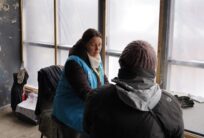
Mobile protection services are critical in delivering support to survivors of gender-based violence across Ukraine
24 Nov 2022Kateryna, a 31-year-old social worker at UNHCR’s partner NGO Rokada, coordinates the gender-based violence (GBV) programmes in ten oblasts of Ukraine and oversees the work of 20 specialist staff. “We see that because of the war, there is an increase in gender-based violence. Apart from sexual violence linked to the […]
